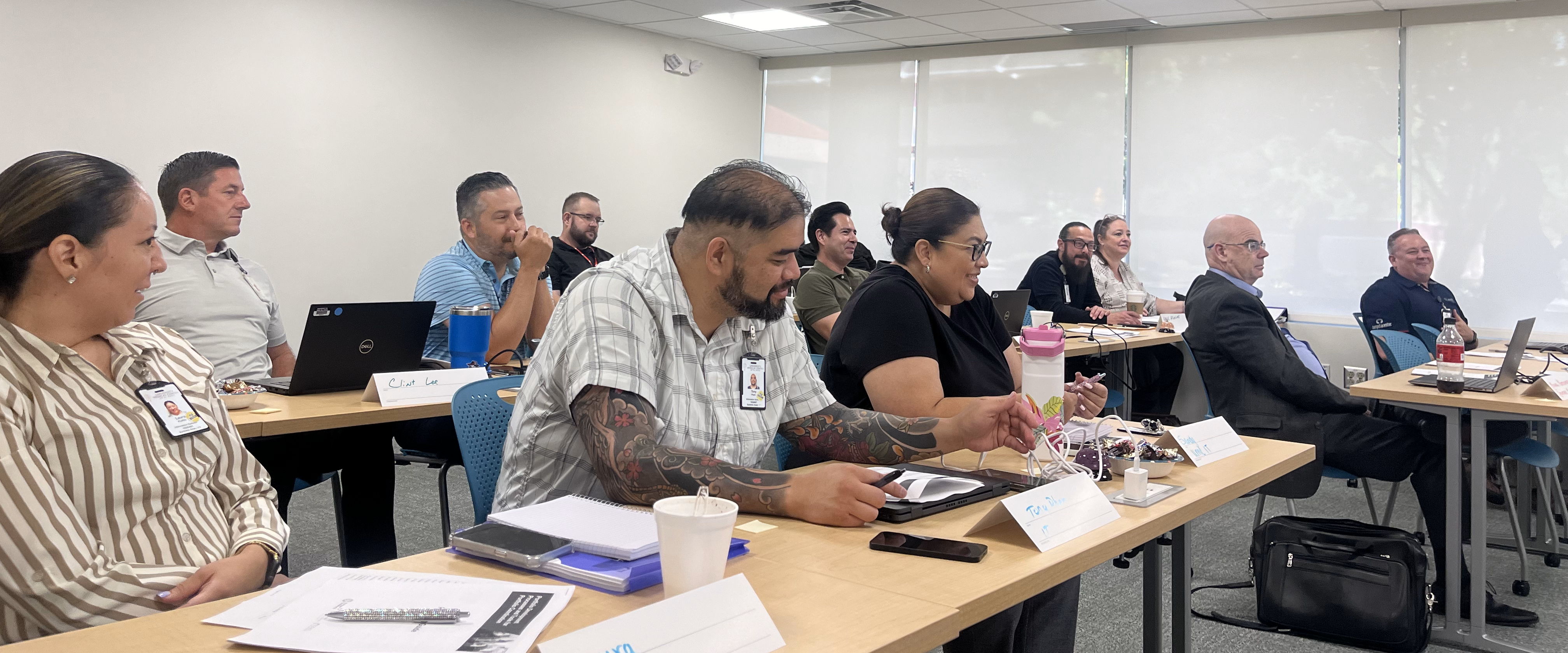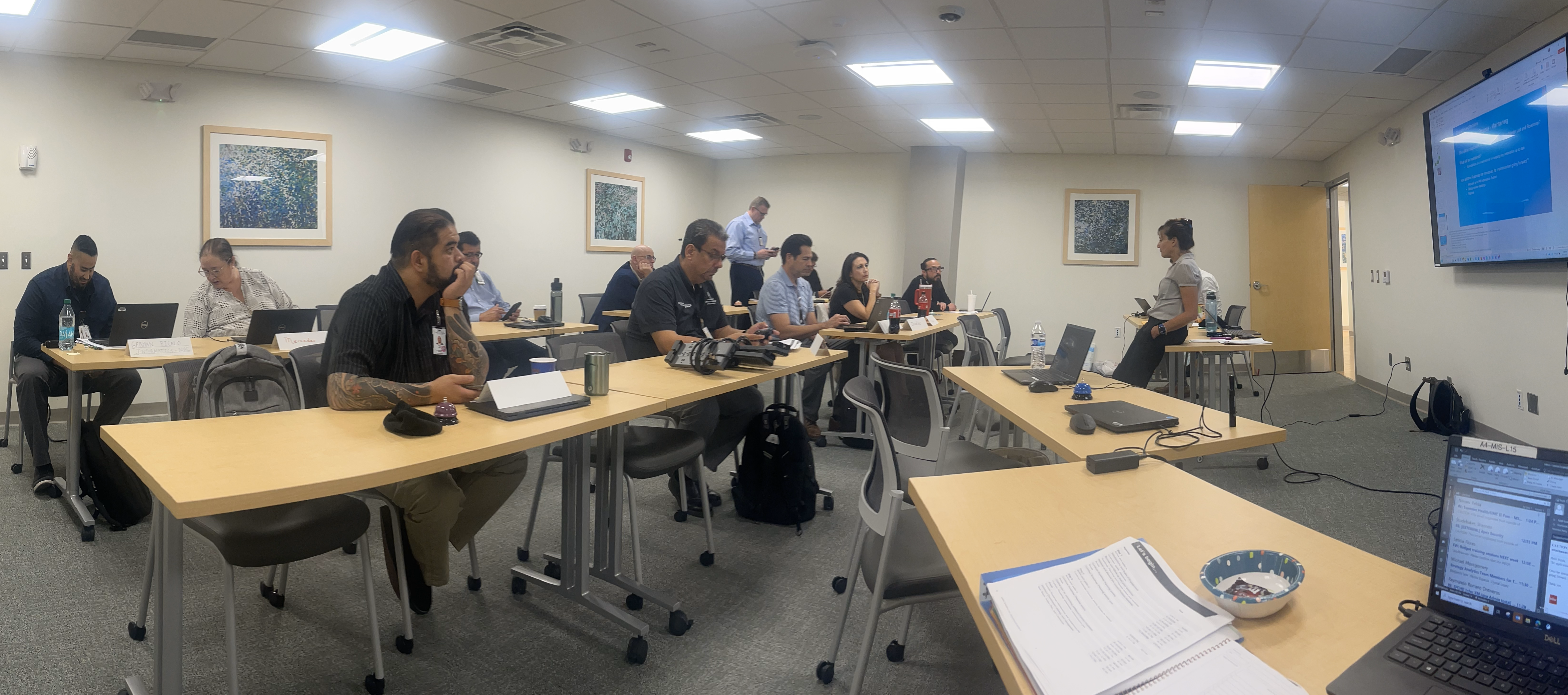UMC El Paso and El Paso Children’s Hospital
Transforming Project Portfolio Management for Operational Excellence
Overview
The Organization
Located in El Paso County, Texas, the University Medical Center of El Paso (UMC) and El Paso Children’s Hospital (EPCH) form the El Paso County Hospital District, providing critical healthcare services including a Level 1 trauma center, acute care teaching facility, children’s hospital, and extensive outpatient care. In 2023, they reported:

● 21,297 inpatient admissions
● 14,952 surgical cases
● 122,046 emergency room visits
● 1,080,301 outpatient visits
The Challenge
Transform how work across the organizations is planned and executed to achieve strategic and operational objectives.
“
Everyone, not just IT, will need a successful PMO. . . we need to have a grasp of all the projects in the hospital, not just IT-related projects. Without executive commitment, we will not be successful. Better organization of time and resources for all projects are needed to provide better service to our patients.”
- Oscar Villa, IT Service Delivery Manager
The Solution
Key Improvements included:
- An established decentralized PMO with clearly defined authority and responsibilities, and measurable goals and objectives for monitoring effectiveness.
- Clear and consistent IT and Informatics work types to drive future data analysis for resource and process management.
- Unified portfolio management where all projects were categorized into four portfolios and tracked using a centralized tool and visual roadmaps.
- Standardized practices, including a library of templates and tools to ensure consistency in project management across the organization.
- Problem-driven planning, incorporating problem statements in the project intake process for improved project scoping and measurable outcome expectations.
The Success Story
Background
Despite ambitious strategic goals, UMC El Paso and EPCH faced challenges aligning projects with their vision and balancing resource supply with project demand. Specific concerns shared by the organization included:

- Lack of strategic alignment: Projects chosen without clear connections to organizational objectives.
- Fragmented governance: siloed decision-making process, with limited cross-department communication and no formal processes for project prioritization.
- Resource Constraints: There was no structured method to assess and allocate project resources effectively.
- Absence of Standard Practices: Inconsistent project management practices and tools hindered efficiency.
“
A successful hospital PMO strategy will require collaboration between all departments and leadership. This can be challenging, and we will need to have an open mind and commitment from everyone in the organization. We will have to let go of our department goals and think about the overall vision for the hospital. This has been challenging in the past in our organization, but I am hopeful that we can come together and agree on a process that will work for everyone.”
They needed to transform how work was planned and executed by implementing smart, data driven, practical processes and tools for project and portfolio management.
Operational Excellence: Project Portfolio Management Optimization
Partnering with MAKE Solutions

To address these challenges, UMC and EPCH engaged MAKE Solutions to establish a decentralized Portfolio Management Office framework. Over six months, more than 20 leaders participated in a comprehensive series of workshops that focused on:
- Standardized project intake – supporting the capture of critical information necessary for project prioritization and planning.
- Project portfolio development and roadmap management - creating a centralized roadmap to track project timelines, resource commitments, and potential conflicts.
- Portfolio and project management processes and tools – establishing standards of practice.
- Education and communication plans – ensuring change adoption and sustainability.
- Metrics for success - defining specific outcomes and performance indicators to measure the effectiveness of implemented changes, foster accountability, and drive continuous improvement.

“
I believe the overall impact of the workshops will be positive for the organization. It will streamline our process and help keep track of all projects. It will also help save money on projects that are completed and not necessary.“
Immediate Results
“
The excitement created in knowing we are part of addressing needed change and structure for governance and creating a portfolio that will be successful for the district was impactful. I learned that the experiences encountered with governance are shared through the teams. This is a great start to addressing change as we have common ground in building a future of excellence.”
– Deborah Chasco, Director
This effort resulted in 41 key decisions committing to transformative operational changes, 36 completed action items carrying out the decisions for change, with 41 additional actions to continue the work, and 10 measurable outcomes established to evaluate value achievement from operational changes.
Key Improvements the implemented during the workshop series included:
- An established decentralized PMO with clearly defined authority and responsibilities, and measurable goals and objectives for monitoring effectiveness.
- Clear and consistent IT and Informatics work types to drive future data analysis for resource and process management.
- Unified portfolio management where all projects were categorized into four portfolios and tracked using a centralized tool and visual roadmaps.
- Standardized practices, including a library of templates and tools to ensure consistency in project management across the organization.
- Problem-driven planning, incorporating problem statements in the project intake process for improved project scoping and measurable outcome expectations.
The Outcomes
The workshops delivered immediate and tangible benefits:
- Improved transparency: A unified roadmap providing leaders with a holistic view of all ongoing and planned initiatives.
- Resource optimization: Streamlined processes allowing for better allocation of IT, informatics, and educational resources.
- Collaboration across departments: Consistent terminology and shared processes fostering greater alignment and synergy across teams.
- Centralized project tracking: Minimizing duplication of efforts and improving timeline and resource management.
“
The workshops were successful because they provided information on advanced project management tools and offered practical, real-world applications that directly addressed our organization’s challenges. The interactive format and expert guidance facilitated a deep understanding of portfolio coordination that will lead to immediate improvements in our processes and teamwork.”
- Raul Arenivas, Clinical Informatics
Long-Term Impact
Over the upcoming months UMC and EPCH will measure their implemented changes to validate achieved value and ensure a sustainable continuous improvement approach. The implemented changes position UMC and EPCH to realize significant long-term benefits, including:
- Streamlined project coordination: Fewer delays will occur due to improved cross project communication, and better resource allocation across projects.
- Enhanced value delivery: Projects will be better scoped based on business need (problem statement) with clearer expected value outcomes.
- Cost savings: Consistency and transparency reduce inefficiencies and unnecessary expenses.
- Continuous improvement: Metrics ensure ongoing evaluation and refinement of processes will sustain progress.
- Increased achievement: Managed projects drive faster implementations with greater efficiency.
- Improved employee satisfaction: When employees know what their priorities are, they can stay focused working on the right things at the right time.
Conclusion
“
Thank you for providing structure and the ability to change how we do business to align with strategic planning and implementation of initiatives involving technology.“
- Deborah Chasco, Director
Through MAKE’s Operational Excellence Workshop Series for Project Portfolio Development, UMC and EPCH established sustainable simple processes and tools for providing the organization with a better understanding of all work being planned, where synergies exist, with the ability to avoid collisions and conflicts.
Visit our website to learn more about MAKE’s Operational Excellence services and read more Operational Insights and Client Experiences. Access our free resources to Discover operational improvements that can benefit your organization.
